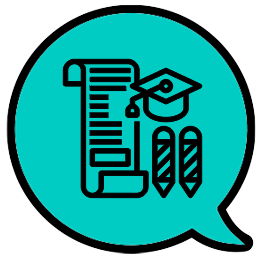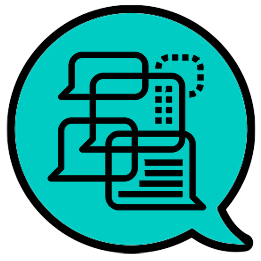
The landscape of education is changing rapidly to meet the challenges of the 21st century. The European Reference Framework for Key Competences for Lifelong Learning (European Commission, 2018a) promotes measures to improve the development of key competences for all people preparing them for changing labor markets and active citizenship in more diverse, mobile, digital and global societies and The Reference Framework of Competences for Democratic Culture recommends the competences that need to be acquired by learners if they are to participate effectively in a culture of democracy and live peacefully together with others in culturally diverse democratic societies.
A more strategic and comprehensive approach to key competences development is necessary, particularly focusing on integrating transversal skills across school curricula.
The recommendation identifies eight key competences that are fundamental for each individual in a knowledge-based society, particularly:
- Communicating: to express and interpret concepts, thoughts, facts and opinions both orally and in writing including mediation skills , i.e. summarizing, interpreting and intercultural understanding.
- Learning to learn: to effectively manage one’s own learning, either individually or in groups.
- Social and civic competences: to participate effectively and constructively in one’s social and working life and engage in active and democratic participation, especially in increasingly diverse societies.
- Sense of initiative: to turn ideas into action through creativity, innovation and risk taking
- Cultural awareness and expression: to appreciate the creative importance of ideas and experiences.
The competences for democratic culture, instead, focus on values, attitudes, skills, and knowledge necessary for participation in democratic processes and intercultural dialogue as:
- Values: valuing human dignity and human rights; valuing cultural diversity; valuing democracy, justice, fairness, equality and the rule of law.
- Attitudes: openness to cultural otherness and to other beliefs, world views and practices; respect; civic-mindedness; responsibility; self-efficacy; tolerance of ambiguity.
- Skills: autonomous learning skills; analytical and critical thinking skills; skills of listening and observing; empathy; flexibility and adaptability; linguistic, communicative and multilingual skills; co-operation skills; conflict-resolution skills.
- Knowledge and critical understanding: knowledge and critical understanding of the self; knowledge and critical understanding of language and communication; knowledge and critical understanding of the world: politics, law, human rights, culture, cultures, religions, history, media, economies, environment, sustainability.

Considering that:
- 21st century key competences are those which all individuals need for personal fulfillment and development, employability, social inclusion and active citizenship,
- they have to be developed in a lifelong learning perspective, from early childhood throughout adult life, and through formal, non-formal and informal learning
- there is a gap between the potentials of new approaches to learning and the actual implementation in a lifelong learning prospective
and considering that
- in times of economic and political crisis, it becomes even more evident that citizens should be able and willing to engage actively in defence of these values and principles, a dynamic and never complete process
- designing and developing curricula, pedagogies and assessments suitable for different contexts and education systems is extremely valuable for those responsible, for example, learners generally speaking, curriculum designers, teachers, examiners, teacher trainers and other stakeholders, all of who are social actors
Debate as a New Approch to Learning promotes debate and teaching by debate as an innovative practice.
Learning and teaching today cannot be separate from integrated approach and cross-disciplinary view. Education and training institutions need to review their organizational strategies and improve their capacity to adapt, promote innovation and exploit the potential of technologies and digital content.
Debate techniques offer the opportunity to engage the students with the material they are studying in different ways, forming and deconstructing both the opinions of others, and their own. Debate, based on research, teaches students how to deal with information, social networks and disinformation (new term for fake news just adopted by EU). Students now read differently than before and also search for information differently.
Media education should be a new frontier for the school in order to enable students to critically evaluate data and information. The Internet has a significant potential in providing educational information, it can be compared with a huge home library, however the lack of editorial standards limits the Internet credibility.
Debate fosters the students' active role making them protagonists/creators of their educational process, provides experiences that are conducive to life-changing. Through debate students acquire transversal competencies that are far beyond what can be learnt in any other setting, they are guided to understand the challenges facing the world and how to develop opinions working towards solutions.
Debate promotes democratic values, fundamental rights, intercultural understanding and active citizenship, fosters the inclusion while preventing and combating discriminatory practices.